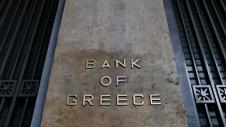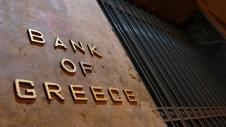The reduction of non-performing loans to single digits, from about 35% today, without raising fresh capital, is the main strategic goal of systemic banks for 2021 - 2022.
Eurobank, Alpha Bank and National Bank, through the large transactions that have been implemented, or will be implemented in the near future, will reduce their NPL ratio between 15% (Eurobank and National) and 24% (Alpha). According to their plans, new sales of problem loan packages over the next two years 2021 – 2022 will allow them not only to reduce NPL ratios to below 10%, but even lower it to 5% by the end of 2022, achieving the goal set by European authorities.
Plans do not target share capital hikes but the utilization of funds that will be created internally (from profits, bond profits, reduction of provisions, expansion of assets).
Given that three recapitalizations took place (2013, 2014 and 2015), and that in the first and third ones, the stakes of old shareholders were reduced in value to just about zero, lenders want to avoid a repetition of this at all costs.
Of course, the pandemic and the inevitable creation of new non-performing loans pose additional challenges to achieving this goal, but banks believe that it can be achieved, provided that the health crisis is controlled and economies return to recovery in 2021.
Piraeus Bank has the most work to do. After the conversion of Piraeus Bank’s convertible bonds (CoCos) into shares and the increase of the state’s position in the bank to 61%, there will be a share capital increase in 2021, in order to return the majority of the bank's shares back to private sector investors.
It is noted that banks have made great progress on reducing non-performing loans. At the end of September, they amounted to 58.7 billion euros, reduced by 9.8 billion compared to the end of December 2019, while from the highest point of the crisis (March 2016) when sour debt had reached 107.2 billion, the reduction achieved by the banks exceeds 48 billion euros. reflecting the significant progress made.
However, the non-performing loan ratio still stands at 35.8% compared to the EU average of 2.9%, which is the level Greek banks should be targeting as soon as possible, in line with calls from European authorities.
Expectations of a solution being found to Greece’s bad debt woes without further capital being needed (utilizing the extended "Hercules" plan and the BoG's proposal for the creation of a bad bank) fueled a rally in bank shares in November and December, during which prices more than doubled.
Large securitizations
Eurobank was the first bank to launch a very aggressive and ambitious plan to finally solve its NPL problem. Last June, despite the problems caused by the pandemic, the bank completed the Cairo securitization through which it managed to reduce its NPEs index from 33% (June 2019) to 15%. The bank's business plan predicts an NPEs index of below 9% by the end of 2022, however, according to sources, the bank's management is considering the possibilities for accelerating the planning.
In the final stretch is Alpha Bank's big deal, the Galaxy project - one of the largest non-performing loan deals in Europe. With this transaction, the bank's NPEs index from 43% (September 20) is projected to fall to 23%, with the aim of falling below 10% in 2022. The central goal of the management is to achieve this target without any capital increases.
National Bank, through the Frontier project which was recently approved by its board, the lender will reduce the NPEs index below 15% from 30.1% at the end of last September. It is noted that the problem loans for sale constitute over 60% of the lender’s total stock of non-performing exposures.
As far as Piraeus Bank is concerned, it has been announced that a share capital increase will take place within the year with the aim of returning the bank to private investors. The bank's management is accelerating the plan to reduce the stock of non-performing loans and through Phoenix and Vega will succeed in reducing the NPEs index from 47% today to 30% by the end of the year. Management has announced that this year internal capital of 1 billion euros will be created which should be added to an additional 400 million euro boost coming from the ongoing exchange of Greek government bonds.
Avoiding the need for more capital
The above major securitizations were carried out with the help of the state guarantees plan "Hercules" and reducing the NPL ratio to single-digits will be achieved mainly through this plan.
During the meeting held Friday by the Deputy Minister of Finance, George Zavvos, with the heads of the commercial banks, Zavvos conveyed to the banks the decision of the government to extend the state guarantee plan, through "Hercules II", and immediately present the plan to the commission. The aim is to obtain all the necessary approvals from the European authorities, including the ECB, within the first quarter of 2021 in order to make the new guarantee package available to banks and to proceed with new securitizations in order to finally address the problem. Zavvos is optimistic that the relevant approvals will be obtained quickly, as this is not a new plan but an extension of an existing one that has received the relevant approvals.
Through new securitizations, by utilizing the new state guarantees of "Hercules II", the banks are expected most of the ground to achieve their goals. In addition, credit expansion is helping, as a higher loan balance leads to a reduction in the percentage of non-performing loans.
An important tool, which could absorb the new non-performing loans created by the pandemic, is the Bank of Greece proposal to create a bad bank, a plan that the government is considering. The BoG's proposal has the added advantage that it will address the issue of deferred tax credits, while the creation of bad banks to manage bad debt coming out of the pandemic is a central European strategy.









